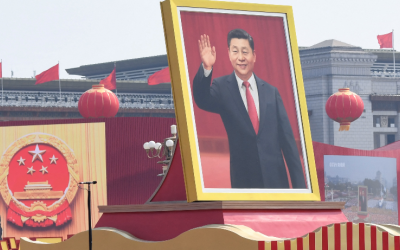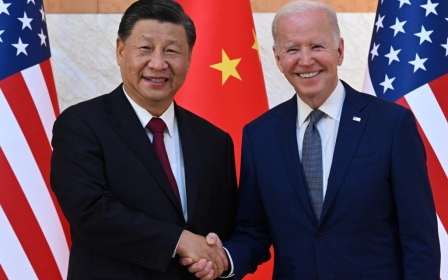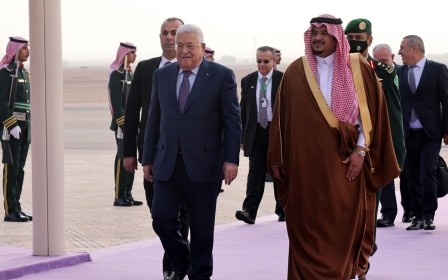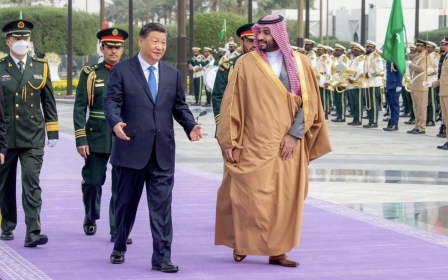China offers to mediate Israel-Palestinian peace talks
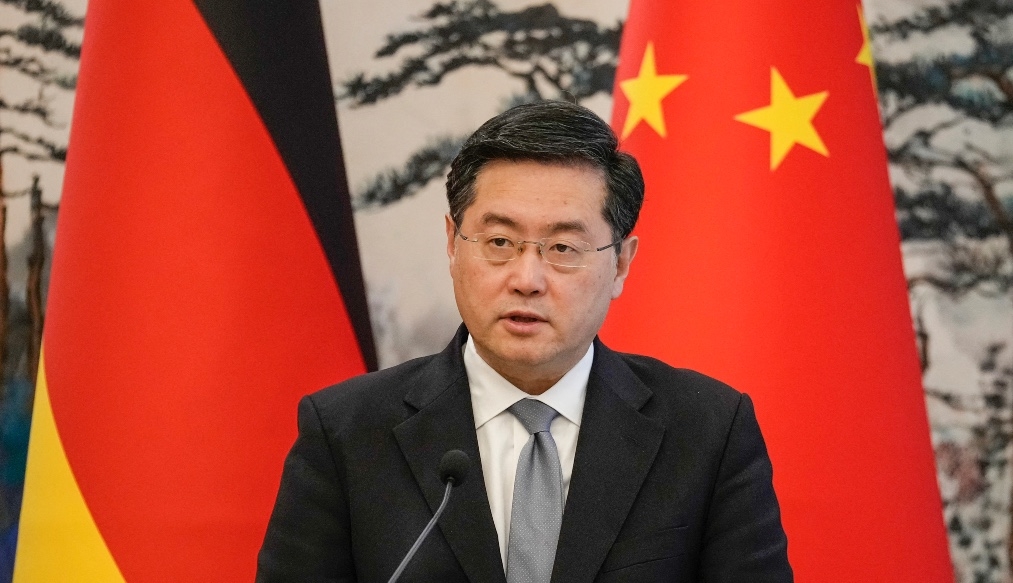
China’s foreign minister told his Israeli and Palestinian counterparts that Beijing is ready to help facilitate peace talks, Chinese state media reported.
In separate phone calls with both officials, Foreign Minister Qin Gang said on Monday that China is concerned about rising Israeli-Palestinian tensions and supports a return to peace talks.
China has offered to mediate between Israel and Palestine in the past. Its most recent pitch came during the May 2021 war between Israel and fighters in the besieged Gaza Strip, when it introduced a four-point peace proposal. An Egyptian-brokered bilateral cease-fire with US backing eventually ended the fighting.
But the new Chinese offer comes amid signs that Beijing is growing more serious about boosting its political role in the region. Last month, it brokered a deal between arch-rivals Saudi Arabia and Iran to restore diplomatic ties.
Qin told Israeli Foreign Minister Eli Cohen that the Iran-Saudi deal offered “a fine example” of overcoming differences through dialogue, according to the Chinese foreign ministry statement.
“China has no selfish interests in the Palestinian question. We hope the two sides can coexist peacefully and defend regional peace and stability,” the statement added.
An Israeli readout of the call made no mention of China’s offer to mediate talks with the Palestinians but said Qin and Cohen discussed “the importance of maintaining quiet at the Temple Mount, particularly in the final days of Ramadan”.
Last week Prime Minister Benjamin Netanyahu's office said all Jewish and non-Muslim visitors would be banned from Al-Aqsa Mosque complex until the end of Ramadan.
The decision, made by Israel in previous years, came just days after hundreds of Israeli settlers and ultranationalists stormed Al-Aqsa Mosque, known to Jews as the Temple Mount, as Palestinians were blocked from accessing the site.
Violent Israeli raids on worshippers at Al-Aqsa Mosque earlier this month prompted a series of retaliatory rocket attacks launched from Lebanon and Gaza and subsequent bombing raids by Israel in response.
Cohen raised Israeli concerns about the threat from Iran’s nuclear programme and asked China to help prevent Tehran from obtaining nuclear weapons.
The reconciliation agreement between Iran and Saudi Arabia has been viewed as a blow to Israel’s plans to isolate Tehran and forge closer relations with Arab states.
Riyadh has expressed a willingness to engage with Israel but is asking the US for security guarantees and help on its nuclear programme in return.
But the thaw in ties with Iran has scrambled the region’s chess board, with Riyadh now looking to strike peace deals with Iran-aligned Houthi rebels in Yemen and rekindle ties to Hamas, the group which governs Gaza, and which the US and Israel label a terrorist organisation.
Analysts have credited China’s ties with both Saudi Arabia and Iran as an asset to its ability to mediate. China is the biggest buyer of both countries’ crude. In 2021 it imported $43.9bn worth of oil from the Gulf state. Meanwhile, it has pledged to invest $400bn in Iran over the next 25 years.
China is Israel's third-largest trade partner behind the EU and the US. The value of trade between the two stood at $18.16bn in 2021. They are reportedly inching closer to a free trade deal, a development that Middle East Eye previously reported has irked Washington.
This article is available in French on Middle East Eye French edition.
Middle East Eye propose une couverture et une analyse indépendantes et incomparables du Moyen-Orient, de l’Afrique du Nord et d’autres régions du monde. Pour en savoir plus sur la reprise de ce contenu et les frais qui s’appliquent, veuillez remplir ce formulaire [en anglais]. Pour en savoir plus sur MEE, cliquez ici [en anglais].


